Disable UAC in Windows 7
As you know, UAC is an available feature in Windows that prevents unwanted changes on your computer, helping to protect your computer better.However sometimes the annoyance caused by it causes the user to be annoyed and just want to remove it.
>>>Disable UAC for applications in Windows Vista
>>> Discover UAC of Windows 7
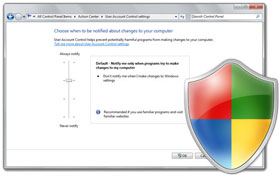 In Windows 7, UAC settings are divided into several levels, allowing you to have more security options for your computer:
In Windows 7, UAC settings are divided into several levels, allowing you to have more security options for your computer:
Always notify - With this option, you will receive a notification before any program changes or when Windows settings need to be an administrator to confirm. When receiving this setting notification, the desktop will be disabled until you confirm or not confirm on the UAC dialog box.
Không xác định bạn chỉ khi chương trình thử thử tạo các thay đổi để my computer - You will receive a notification before the program changes on the computer that needs administrator rights. With this setting you will not receive a notification if you change Windows settings that require administrative rights. In addition, you will receive a notification if a program other than Windows tries to change Windows settings. This is the default level
Notify me only khi chương trình thử tạo các thay đổi với my computer (do not dim my desktop) - Set this level to be the same as above, but it has another thing that the desktop is not disabled, other programs can still work when the notification dialog window appears. This is an option with poor security if you are actually running a malicious program.
Never notify - You will not receive any notifications before any activity needs administrative rights on this computer. If you are accessing with administrator rights, all activities are possible, and if you are a normal user, some activities related to administrative rights will be rejected. Selecting this setting in Windows 7 means that the security level is the same as normal Windows XP, meaning that this is the lowest level of security.
However, if you feel your computer is completely safe and using UAC to protect your computer is unnecessary, or for some reason you want to remove this annoying feature, you can proceed. Act in a number of ways to disable it:
1, Disable UAC through User Account Control Settings
This is the usual way for users to disable UAC
- Go to Control Panel
- Enter UAC in the address bar or in the System and Security section
- Click Change User Account Control Settings
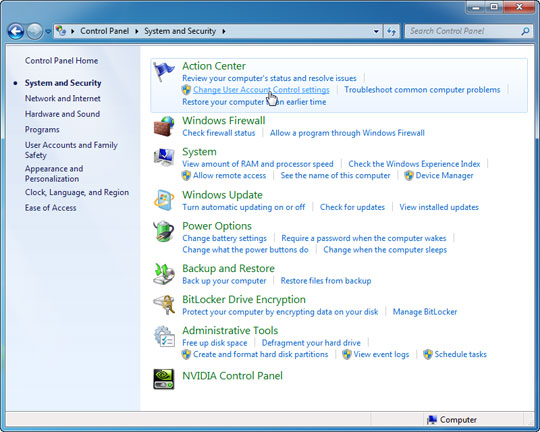
Or you can enter the following statement into the Run menu:
C: WindowsSystem32UserAccountControlSettings.exe
To turn off UAC, drag the slider down to the bottom option Never notify , then click OK . If you receive a message to enter an administrator account password, enter it as required.
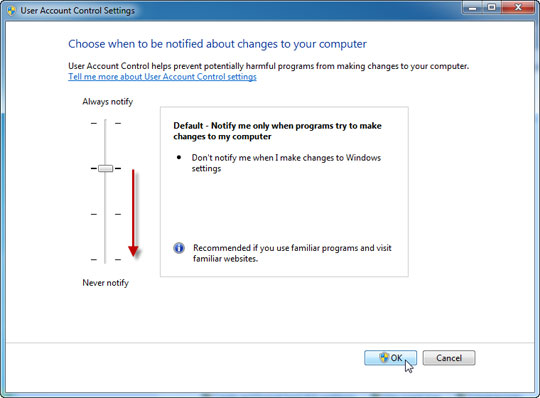
To turn on UAC again, follow the steps above and select the required security level, then click OK .
2, Disable UAC via Group Policy
This is the method that administrators often use to disable UAC on some computers in the network.
You can do it through Local Group Policy or Active Directory-based GPO
If you use Local Group Policy you need to open Group Policy Editor ( Start > Run > gpedit.msc ).
If using AD-based GPO, open the Group Policy Management Console ( Start > Run > gpmc.msc ) from a Windows Vista / 7/2008 computer belonging to a domain. In the GPMC window, browsing to the GPO is required to have an OU or domain connection, where you can edit or even create a new GPO.
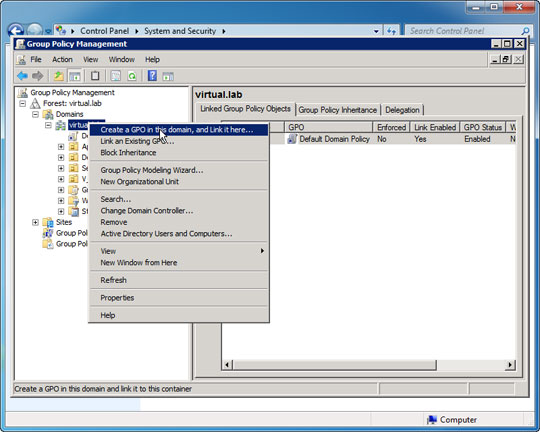
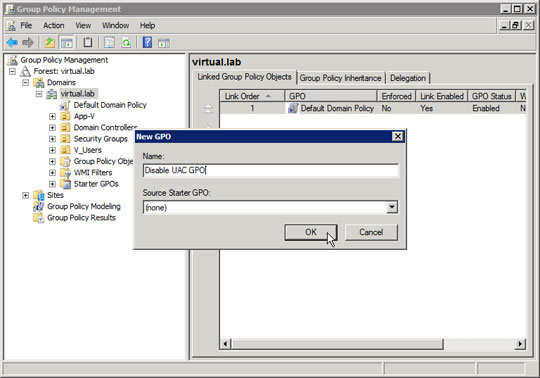
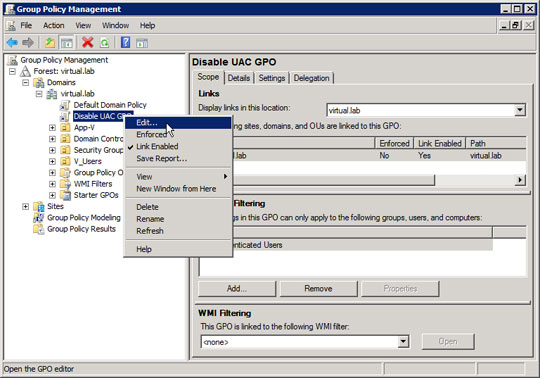
In the Group Policy Editor window, browse to Computer Configuration > Windows Settings > Security Settings > Local Policies > Security Options .
Change the settings as follows:
- User Account Control: Behavior of elevation prompt for administrators in Admin Approval Mode - set the value to Elevate without prompting .
- User Account Control: Detect application installations and prompt for elevation - set the value to Disabled .
- User Account Control: Only elevate UIAccess applications that are installed in secure locations - set the value to Disabled .
- User Account Control: Run all administrators in Admin Approval Mode - set the value to Disabled .
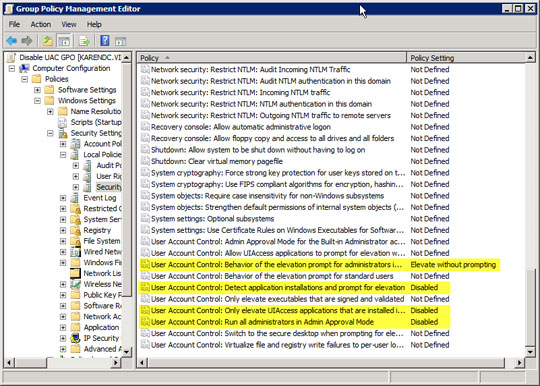
Restart the computer.
3, Disable UAC through the Registry
Note : Changing the registry may cause Windows to fail to boot. So before making any changes you must make sure that you have the registry backup .
Go to Start , select Run , enter regedit and press Enter
If you receive a confirmation message from UAC, select Yes to continue
Navigate to the following path
HKEY_LOCAL_MACHINESOFTWAREMicrosoftWindows
CurrentVersionPoliciesSystem
In the details section on the right, find the EnableLUA key ( REG_DWORD type).
Go to the Edit menu, click Modify . In the Value data dialog box, enter 0 and click OK
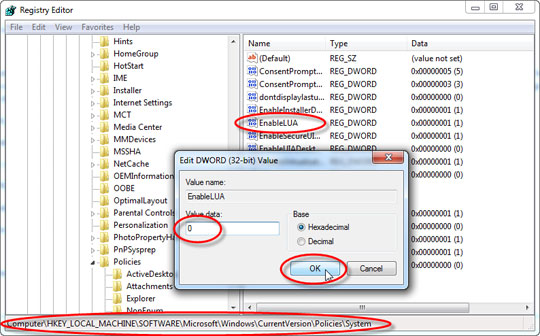
Close the Registry Editor and restart the computer.